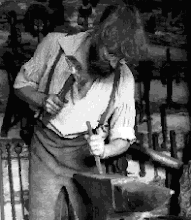Dis·ney·fi·ca·tion
(dĭz′nē-fĭ-kā′shən)https://en.wikipedia.org/wiki/Disneyfication
n.
: 1. The establishment or alteration of business activity to conform with the goals or image of a corporation, especially in the elimination of controversial, sensitive, or potentially offensive activities or material.
2. The presentation of historical or cultural material in an expurgated or distorted fashion in an effort to appeal to a large number of tourists or consumers.
the Free On-line Dictionary
https://www.thefreedictionary.com/Disneyfication
: the transformation (as of something real or unsettling) into carefully controlled and safe entertainment or an environment with similar qualities
First known use of Disneyfication - 1959
Merriam-Webster
https://www.merriam-webster.com/dictionary/Disneyfication
: The alternate term ‘Disneyization’ has the same meaning.
As applied specifically to juvenile entertainment or theme parks, the term appears have been first used in the late 1950’s (specifically related to the Walt Disney company’s operations). A wider application of the term started being applied by social scientists and cultural critics during the 1990’s :
The terms are generally used in a negative way, and they imply homogenization of consumption, merchandising, and emotional labor. They can be used more broadly to describe the processes of stripping a real place or event of its original character and repackaging it in a sanitized format. References to anything negative are removed, and the facts are watered down with the intent of making the subject more pleasant and easily grasped.
Wikapedia
In the Wikapedia overview above, ‘emotional labour’ is specifically mentioned. This refers to a specific expectation / requirement of the behaviour of those undertaking ‘content delivery’. ‘Providers’ are to be expansively enthusiastic of the content and objectives. They are to constantly maintain a ‘happy’ aspect. They are to avoid, at all costs, any comment or behaviour that might possibly prove, in any way what so ever, to be ‘offensive’ to the many individual ‘consumers’. (1)
‘Happy consumer’ is the ultimate goal under Disneyfication.
I first became aware of the term - and it’s application, at the 1999 Association for Living History, Farm and Agricultural Museums (ALHFAM) annual conference at Waterloo, Ontario. Within the greater community of Museums, especially Living History Museums, ‘Disneyfication’ was then, and remains today, a very derogatory label.
As more and more business managers have replaced historians as museum directors, this process of diluting, pacifying (and often plain altering), historical fact, for ‘ease of public consumption’, has escalated. The massive growth of ‘edu-tainment’ in popular media is a dominant example of this.
So, I was bit shocked, certainly dismayed (and frankly, a bit offended), when the administrator of a college level course I was a sessional instructor at, used the term in discussion with me last August. Stated as a desirable method and chosen objective of the program I was involved in.
It is massively clear that between myself and this college’s administration that : “our philosophical approaches to a (name omitted) program are not aligned.”
As important to me personally that the passing of hard won knowledge and experience to a new generation may be, I consider a ’Disneyfication’ approach to be totally incorrect.
I do not consider students to be ‘consumers’ of a ‘product’.
Education should not be reduced to mere ‘customer satisfaction’.
‘Bums in the seats’ is not the measure of a successful educational program.
I am making a clear distinction here between ‘general interest' * and ‘technical’ programs.
A technical program is being defined here as one with fixed physical objectives, defined skills to be acquired, with certificate or diploma only awarded on full and successful completion.
- Effective completion of assigned tasks and the demonstration of the acquisition of specific skills is the requirement.
- An artificial environment of ‘all can do, all will succeed’ does not represent reality - and should not be created (2).
- The assumption of ‘I paid my fee = I get my certificate’ must be enforced as false.
- Making a student ‘happy’ is not a requirement of awarding a passing grade.
* In a ‘general interest’ program, there may be more latitude to consider ‘desire’ on the part of students.
So, Grasshopper…
Examine closely the approaches to teaching a physical skill being described by an Institution and individual instructors.
My (wise?) advice is to avoid those who merely are ‘giving you what you want’.
Beware those who promise easy success.
There are no short cuts to acquiring skill.
1) https://en.wikipedia.org/wiki/Emotional_labor
2)’All people have value’ is something I truly believe.
‘All people are equal’ is a lie however - and NOT the same thing.
I personally can not run a mile, my vision is poor, have huge problems with correct spelling. The accurate truth is not all people can do everything, or at identical ability.
(If you are blind - you can not undertake hand forge work. Period.)





















1 comment:
Anyone who is 'true' to their craft, profession, art, or endeavor should hold the same opinion. There are no short cuts; if you want to truly know something you must do that thing.
Post a Comment